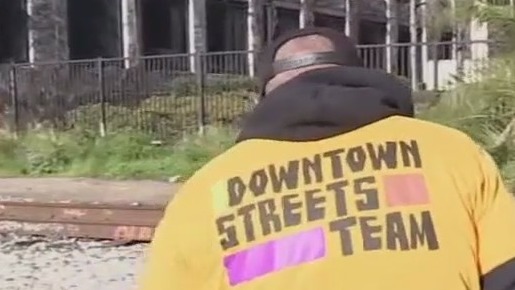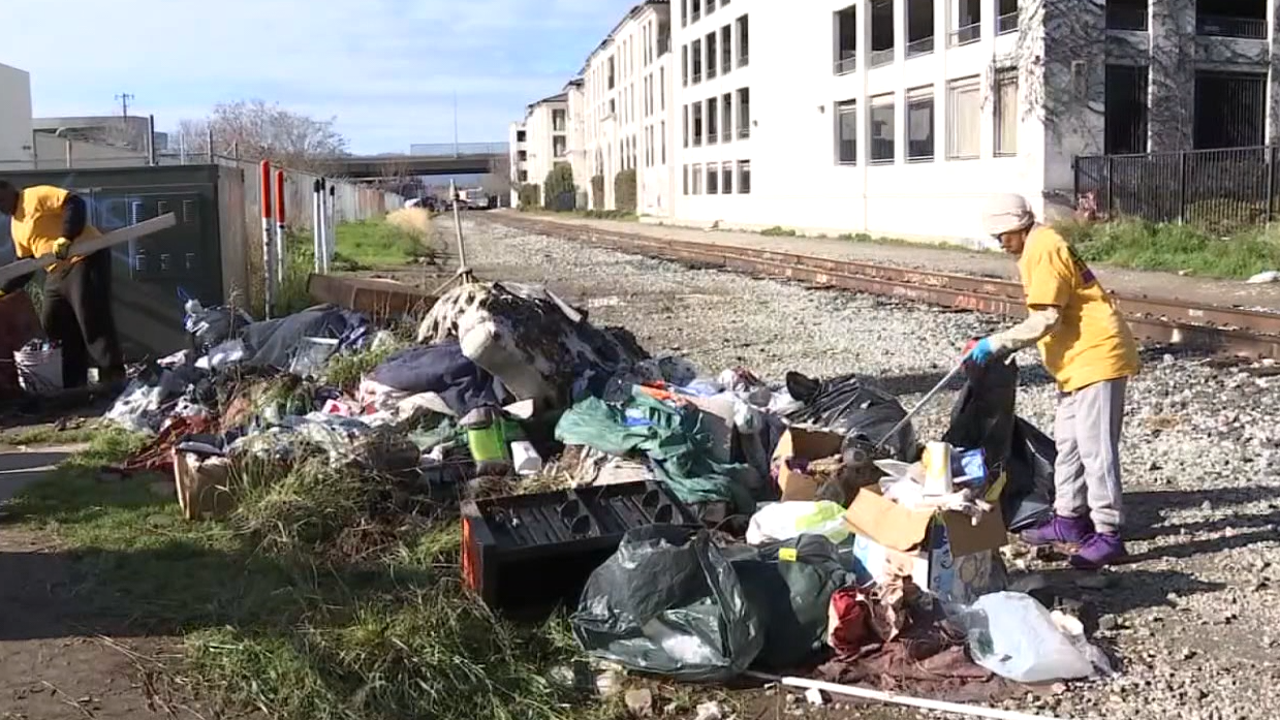 San Jose street cleaning team ends services after 20 years
San Jose street cleaning team ends services after 20 years
After 20 years, today was the last day of services for the Downtown Streets Team, a non-profit that provides resources for the homeless community, and helps clean city streets. The organization was founded in Palo Alto and has a main office in San Jose but has branches in 16 locations around Northern and Central California.
SAN JOSE, Calif. – After two decades of cleaning streets and uplifting unhoused residents, a South Bay nonprofit has shut down operations.
Friday marked the final day of service for the Downtown Streets Team.
Nonprofit known for its yellow shirts
What we know:
Founded in Palo Alto, the Downtown Streets Team (DST) grew to 16 branches across the region, including its main office in San Jose.
Team members were easily recognized by their bright yellow shirts.
“I really am going to miss the yellow shirts,” said Jose Villarreal, a program manager in San Jose. “Folks saw that as a like a superhero cape. Once they out on the yellow shirt, they were superheroes — they were cleaning, they were seen.”
Over 20 years, DST collected 33 million gallons of trash and helped thousands find employment, housing, and stability.
Shutting down amid financial and political challenges
Big picture view:
The organization’s leadership cited a “shift in the financial and political landscape” as the reason for the closure.
“Unfortunately, the local political climate has not been on our side,” said Erika Laguna, DST’s director for Santa Clara and San Mateo counties. “Funding has changed and shifted. We’re not the only ones affected, but we are leaving a beautiful legacy.”
Friday’s closure marked the last day of services in San Jose. Staff members began packing up tools and supplies, preparing to close all offices in Northern and Central California by Oct. 31.
Honoring two decades of impact
Local perspective:
DST staff and participants held a series of farewell gatherings this week from Palo Alto to San Jose — both to mourn the loss and celebrate the program’s accomplishments.
“Everybody was like, ‘OK, if you’ve been housed with DST, please stand up. If you’ve had a barrier removed,’” said Laguna. “Really reminding them that they have each other, even if we’re not here.”
For many, the closure feels personal.
Debrina Tenorio, once unhoused, said DST helped her find a home, employment, and purpose.
“They gave me self-esteem,” Tenorio said. “We had success meetings every Wednesday. We started out getting stipends and then employed.”
Employees are now seeking new jobs, while clients are being referred to other local nonprofits.
Still, the void left behind will be hard to fill.
“When you’re trying to get out of poverty, trying to get out of homelessness, or you just got out of jail, or trying to get sober — is finding a community that believes in you and uplifts you,” Villarreal said. “That’s what our folks are going to miss most.”

